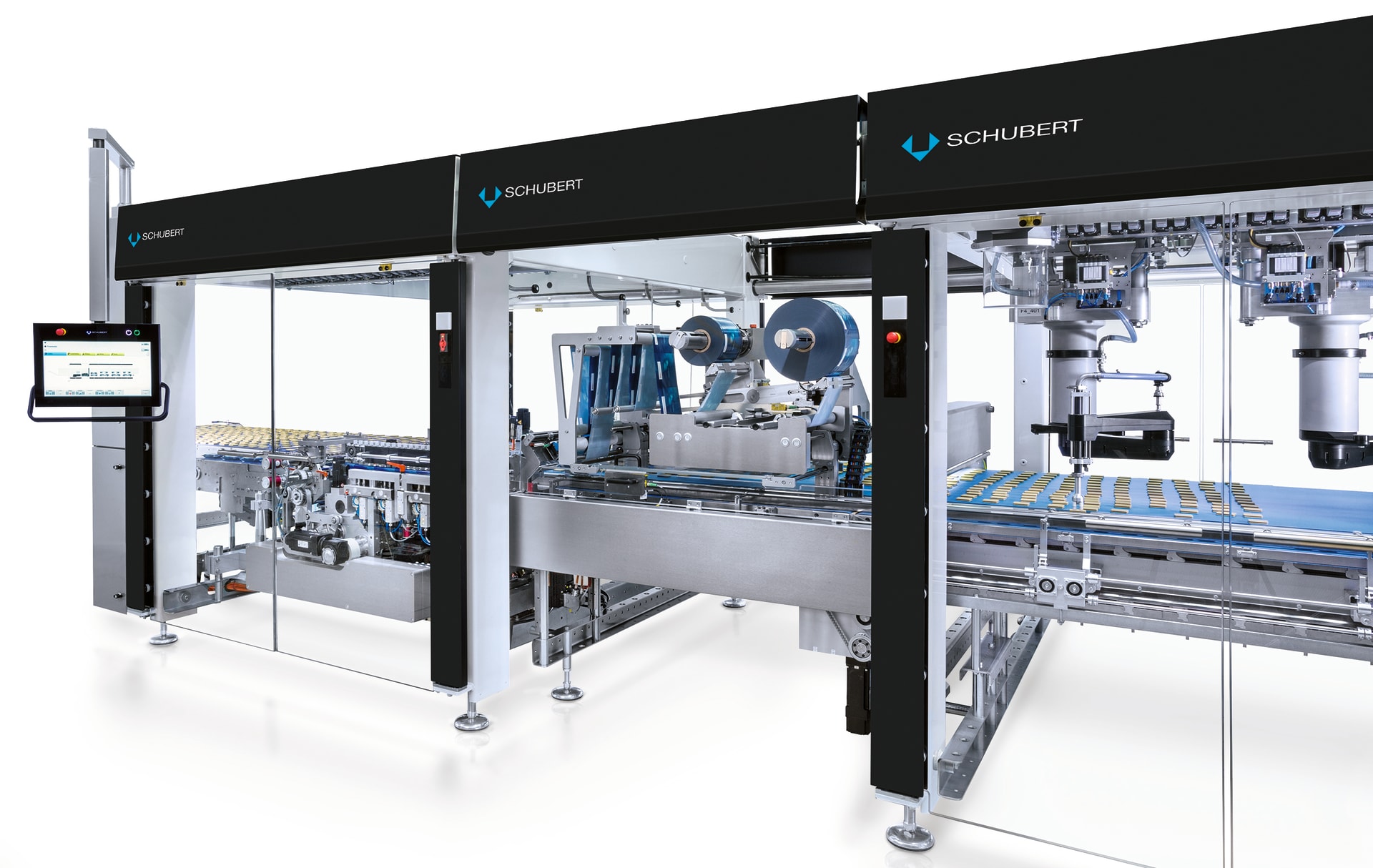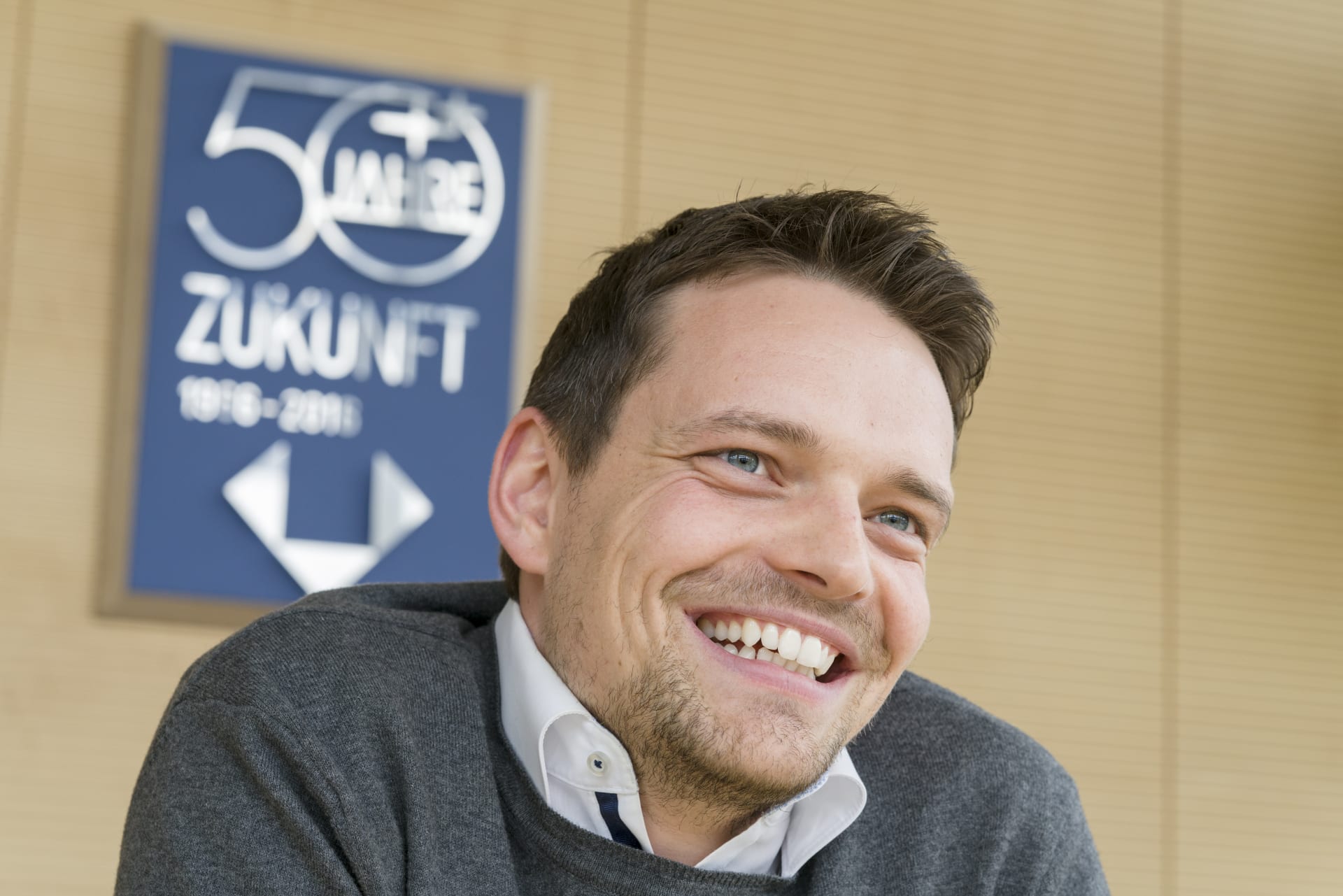Mr Schubert, the Flowmodul is now being used by many of your customers. What is your assessment since its market launch?
To date, we have sold 32 Flowmodul components to both existing and new customers in a total of eight countries. Our objective for 2018 will be to sell 30 Flowmodul systems. And sales in 2021 are expected to increase to 100 Flowmoduls.
With the Flowmodul, small batch sizes, short product lifecycles and high-level product diversity can be handled more efficiently than ever before. This is what makes the application so attractive in many sectors. Our flow-wrap technology is currently being used to package a wide range of products such as chocolate, biscuits, cakes, chocolate figures, yoghurt cups and even ice cream – which demonstrates that the Flowmodul is already showing great success in many different industries. As planned, the Schubert Flowmodul has evolved into an important growth factor for our corporate group.
With the Flowmodul, Schubert now also offers a highly efficient primary packaging solution. Have you also been able to win over new customers?
During the initial launch period, we most often sold the flow-wrapping unit to customers who had already been working with us very successfully. These customers know that we always keep our promises and were confident that the new system component would also deliver all the benefits they have come to expect from Schubert technology.
We are very pleased that, over the last few months, we have also been able to win over customers who had not worked with us previously with a primary packaging solution. For the first time ever, a flow-wrapping machine can be seamlessly integrated into the packaging process. And ultimately, this is what convinced existing as well as new customers.
What feedback have you received from customers who are already using the Flowmodul?
The feedback we are receiving clearly reflects satisfaction with the compact combination of primary and secondary packaging processes. Uniform control, ease of use, highly flexible robot loading, and the fact that customers are given a solution from a single vendor are also important arguments. Our customers appreciate the fact that Schubert packaging systems are operated with the high-level efficiency we promise. Additionally, they are very enthusiastic about the close contact we maintain with them and confirm again and again that the quality of collaboration with our family business is exceptionally positive. We take good care of our customers and their applications, and we work together with them to achieve an optimal solution.

What are the most recent developments relating to the Flowmodul?
In the latest model variants, we are even more closely oriented to the TLM concept, which has always made our modular machine approach so successful. With the focus on our users, we have significantly improved accessibility for maintenance and cleaning. We have also made suspension of the film rolls more ergonomic. This all makes the Flowmodul even easier and more efficient for technicians and machine operators.
What development plans are there for the future?
We are currently working on an unprecedented sealing technology, which enables the application of hot-seal film even for sensitive products. Nowadays, sensitive products, such as chocolate bars, are wrapped in cold-seal film to avoid melting of the chocolate. Cold-seal film, however, in addition to its higher cost, has the disadvantage that it cannot be stored for an extended period of time. The adhesive strip loses its strength over the storage period. Moreover, when the package is opened, the adhesive could contaminate the product, which of course is a significant consumer related risk. I am pleased to be able to tell you today that we are anticipating great success with the new sealing technology and that we will be entering into series production in autumn 2018.
We also have great plans for our customers in the healthcare and pharma sector – with a focus on meeting the industry’s stringent requirements and specific standards. This will also include the option of gas injection (modified atmosphere) of the individual flow-wrap bags.
I see great opportunities for our Flowmodul in this area as well.

Johannes Schubert, Flowmodul product manager and grandson of company founder Gerhard Schubert.



